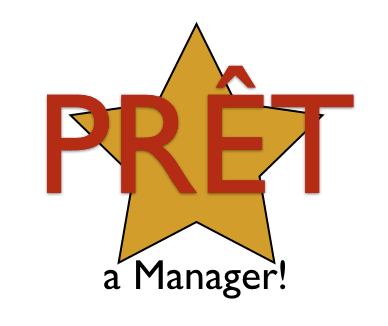Oyé Oyé: managers listen up
In the 16 years that I worked in the professional salon business around the world for L’Oreal (Redken, Kerastase…), I met a great number of extraordinary men and women who are hairdressers, several of whom I still count as close friends. Social beings by definition, the best hairdressers have a high social intelligence quotient. Being connected with hundreds of hairdressers around the world on the various social media networks, I can see how vivid the online conversation is… most social.
The hairdresser plays a number of roles: making people feel and look great, social glue for the local community, an artist and a business person. If the first three roles are largely well fulfilled, however, the fourth (business) remains frequently unsatisfying. Like many of the artisan trades, a hairdresser doesn’t see him or herself as a salesperson and even less as a business person. And, yet, they are every bit the entrepreneur. If I had to point out the biggest failing of the hairdresser as business person, it is as a manager. I mean management of people in the broadest sense: specifically, knowing how to hire, train and retain staff.
People management skills
I read a New York Times article a few months ago about the great success story of PRET A MANGER (PAM), an English fast food chain, founded in 1986, that now boasts over $500 million in sales. On the face of it, PAM is not selling an novelty: freshly made sandwiches. The novelty, and that which makes the chain work, is that the sandwiches are made fresh every day, that there is no waiting, and (on balance) the employees are happy. The first two, if they do not sound original, are de facto experienced as different by the paying customer. The third trait, however, is the element that grabbed my attention: happy employees. The keys to success for PAM?
- A great and reliable product, for sure: freshly made, tasty, mixed in with some nice new product offers
- Service: the product is truly “ready to eat” as opposed to “ready to wait”
- Exceptional people (and, therefore, service)
High quality service and highly motivated staff — considering the generally low level of pay — is the exception. PAM has introduced personalized bonuses, team bonuses and, above all, an intention to recruit attitude first. Evidently, they also pay above the norm for the industry.
In researching this post, I particularly enjoyed this quote from Pret’s Communication Manager, Jay Chapman in Sam Lizar’s The Insider Blog (2008), “If you treat your employees well and involve them in the decisions that will affect them, they’re much more likely to be engaged in carrying out the effects of those decisions.” Further on in the article, Jay says, “[Y]ou can’t hire someone who can make sandwiches and teach them to be happy,…so we hire happy people and teach them to make sandwiches”.
Brand as a service
Hairdressers, like baristas, are in the service business. They rely on the talent of their staff, but also on the alchemy and the ambiance that is created in the salon. If hairdressers and baristas are obviously in the service business, brands should still understand that, even if they are selling products, the surrounding service is what makes for the true experience and will create long-term brand loyalty. When brands are exploring digital marketing, the person behind the keyboard needs to find the energy, words and realtime solutions, and that takes what I like to call social attitude.
I think myndset is what it’s all about, surprisingly! Your thoughts?













I think PAM (Prêt à Manger) displays a hiring technique that is more and more used by companies. It shows that they are understanding the critical importance of human capital in their performance. Rankings such as "Great Place to Work" are supporting this new trend. Actually, it has been proved, in the services sector in particular, that happy employees tend do be more efficient. Being more efficient means that customers are more satisfied. This goes back to employees being happier because they are offering better services. Implementing such a virtuous circle would obviously increase companies' performance. Markets being more and more competitive, businesses, which are able to distinguish themselves with high quality services, are surely going to win customers over their competitors. In order to establish this virtuous circle, they definitely need to be able to rely on a high quality management that would offer the appropriate work environment for employees to outperform.
Hi Minter
What a great article – as ever the simplest things are often the most difficult to find – Organisations get fixated with "qualifications" and fail to really value the human side.
PAM is always my sandwich bar of choice for exactly those reasons. I gave positive feedback to some of the team when I last visited the new branch in the Westfield centre in London . I love their attitude
@Charlotte: totally love the notion of the "virtuous circle".
@stephen: you can't teach attitude! 🙂
I think it's regrettable that companies actually communicate on the way they treat employees. It is becoming a component of marketing as well as the packaging, or the promotion of a product! It has been well established that care of employees improves productivity and directly impact the level of service. What was identified as internal communication before is now external communication. I think it would be useful to denounce companies which do not respect their employees in order to change mentalities!
Hello,
Reading this article about the success of PAM made me think about the motivation of Management to look for what is constructive in the essence of business. Happiness allows us a really friendly attitude with our clients- they can't be satisfied of our service if we don't transmit to them this positive energy.It's in the heart of our desire to continue.The aim is not only to make them buy but also to spend together a nice time and to make them feel special and respected. Why should a go to buy a sandwich in PAM when there are so many others places? Because it's them who treat me differently and show me that they really care about how I feel. Maintaining a 'happy team' is not easy in the condition of hard work and stress, so caring about the customers has to be partially transformed in caring about our stuff. For me it's like a perpetual joggling without letting the ball fall down.
The way we work and the environment in which we do takes indeed an important role in our performance; as much as whom we work with or for. Some companies such as PAM have understood this. But can we go further by thinking on how the way we work is changing? What is the future of it? Most companies focus on innovating on the products and the services sold to the customers. They look for ways to offer new purchase experiences to them or ways to grab their attention through social networks and mobile devices. What about the future of how people work in general, even in offices? Technology is indeed a factor that counts. As companies move their desktop technology to handheld devices and the cloud, employees can get more independence and work from anywhere. They can work at their office, from home, in a café, having lunch, commuting… but they still need a place where to situate work! The question is, how does a company adapt to these new ways of working? How can managers pass on the culture of their organization and foster interactions across departments? Big corporations are looking to co-working as a possible model. This implies offering more shared spaces and less square footage dedicated to individual work areas. People we’ll be able to work as they want even in the premises of their company. The layout of the areas will be set up in order to allow more freedom. PAM has understood the potential of offering to its employees a good atmosphere and a great way of working. All companies should do the same. Work should not be a Calvary but one of the several ways to get the best from ourselves!